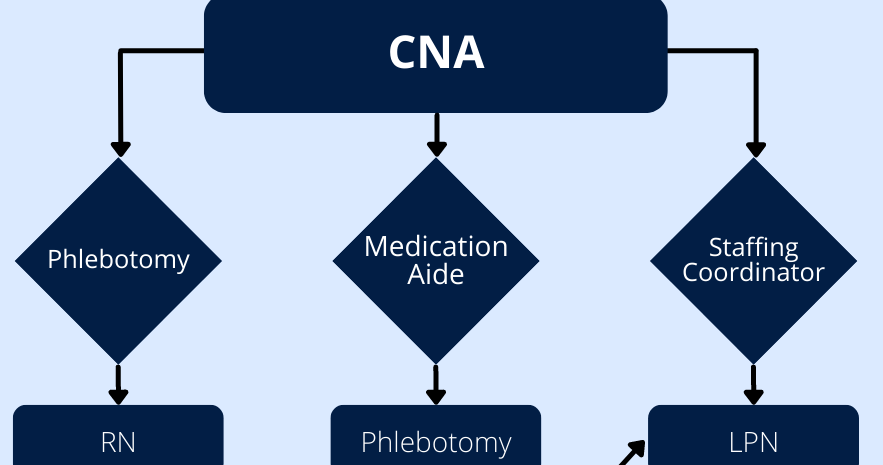What comes after CNA? (2024)

Congratulations! You're a Certified Nursing Assistant (CNA), and you've just completed your training. Whether you're interested in working in a hospital or clinic setting or you want to go further in your career with more education and certification, there are many options out there for you. Here are some options as to how to level up as a CNA:
Something else...?
CNAs gain so much experience from working directly with patients, and this experience can be invaluable for many other roles. We've seen many Dreambound alumni and other former CNAs go on to many different career paths. Here are some:
-
Starting a CNA training program: It may seem daunting at first, but starting a CNA training program can be very fulfilling. You get to train the next generation of healthcare workers while also growing a business from the ground up. Read our guide on how to start a CNA program. Note starting a CNA training program requires you to work as a nurse first for a couple of years.
-
Writer/Influencer: Many healthcare companies are looking to grow their content base, and they are looking for content producers who have had direct experience in healthcare. If you want to work from home and love to write or be on video, this might be for you!
Frequently Asked Questions
What's the highest a CNA can make?
The highest salary a Certified Nursing Assistant (CNA) can make varies but according to the U.S. Bureau of Labor Statistics, the top 10% of CNAs earn more than $48,000 per year as of May 2023.
What is the most difficult part in CNA?
The most challenging aspects of being a CNA often include physical demands, emotional stress, dealing with difficult patients, and assisting patients with physical tasks that can be demanding. Additionally, dealing with illness and death can be emotionally taxing.
What's after RN?
After becoming a Registered Nurse (RN), many professionals opt to advance their careers and become Advanced Practice Registered Nurses (APRNs), which include roles like Nurse Practitioners, Clinical Nurse Specialists, Nurse Anesthetists, and Nurse Midwives.
Which course is best after CNA?
The best course after becoming a CNA largely depends on an individual's career goals! The common next step is to become a Licensed Practical Nurse (LPN) or a Registered Nurse (RN), which offers increased responsibility and income.
Conclusion
We hope that this list has given you some ideas about what to do after CNA training. CNAs have many skills, such as forming relationships with people, caring for others, and healthcare knowledge. These skill sets are useful in any healthcare role. Whether you dive deeper into the medical, administrative, or business side of healthcare, there's a job for every CNA.
The role of a CNA is truly complex yet fulfilling. Learn more about this career from our informative blogs and get additional insights for a more in-depth knowledge of this career:
- CNA classes near me
- 7 Helpful Tips Against Compassion Fatigue for CNAs
- CNA vs Medical Assistant
- Difference Between a Licensed Vocational Nurse And A Certified Nursing Assistant
- How to transfer your CNA license?
- Becoming CNA in High School
- Becoming STNA in Ohio
- Becoming CNA in 3 easy steps
- CNA in Texas
- CNA in California
- CNA in Pennsylvania
Whether you're an existing CNA or looking to enter the healthcare field, here are other healthcare roles you may take into account as you search for your next big role:

Athena is Co-founder and CEO of Dreambound.



